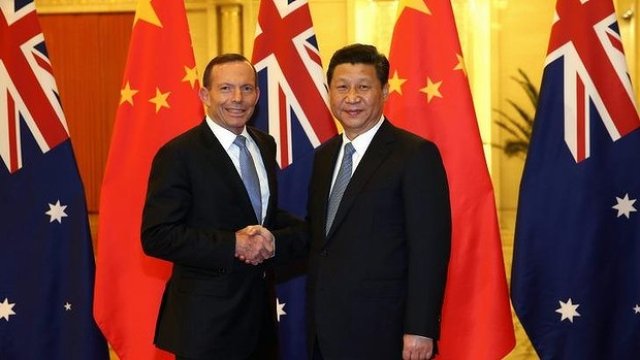
The union movement’s opposition to the China Australia Free Trade Agreement (ChAFTA) has ratcheted up since the agreement was signed in Canberra on June 17.
ChAFTA allows for 95% of Australian exports to China to be tariff free. These will include many agricultural products, including beef and dairy. In addition, there will be liberalisation of market access for the Australia's services sector, and investments by private companies from China under A$1.078 billion will not be subject to Foreign Investment Review Board approval.
The agreement will not take effect until the completion of a review by the Joint Standing Committee on Treaties and the Senate Foreign Affairs, Defence and Trade References Committee. The report will then be tabled in parliament.
Key unions, including the Electrical Trades Union, Australian Manufacturing Workers Union, National Union of Workers, Australian Workers Union, Construction Forestry Mining and Energy Union, Transport Workers Union, Maritime Union of Australia and Textile Clothing and Footwear Union of Australia, were quick to initiate a campaign to block ChAFTA.
Unions’ concerns are that while ChAFTA gives Australian companies greater access to the Chinese market, it also allows more Chinese workers, including tradespeople, to work in Australia for up to four years on temporary skilled migration visas, either for local companies or for Chinese companies operating in Australia.
There appears to be no limit to the number of workers who could be used this way by Australian companies and no “labour market testing” — demonstration of local skill shortages — will be required before they are engaged.
The agreement also allows Chinese companies involved in infrastructure projects in Australia to bring in their own workers as long as the project is worth more than $150 million. No labour market testing will be required here either. Telecommunications projects are among those singled out for these special privileges.
ACTU President Ged Kearney has said that trade agreements should support local jobs and industry and all indications are that the deal with China does not.
“There should be strong rules around labour market testing and labour mobility clauses in the China free trade deal to ensure local jobs are protected,” she said.
Rallies have been called to coincide with parliamentary committee hearings in Melbourne on July 24 and August 28; Brisbane on July 27; Adelaide on July 28; Sydney on July 31; Canberra on August 10; Perth on August 25; and Devonport on August 27.
The rallies are being promoted by the unions as anti-racist. While demanding that there be no job losses for Australian workers, they are also calling for any foreign workers on temporary visas to be employed under Australian conditions of employment.
The campaign will be taken to the ALP at its National Conference in Melbourne on July 25 and 26. The unions have called on the ALP to block ChFTA in federal parliament when amending legislation is tabled in September.
Like the article? Subscribe to Green Left now! You can also like us on Facebook and follow us on Twitter.